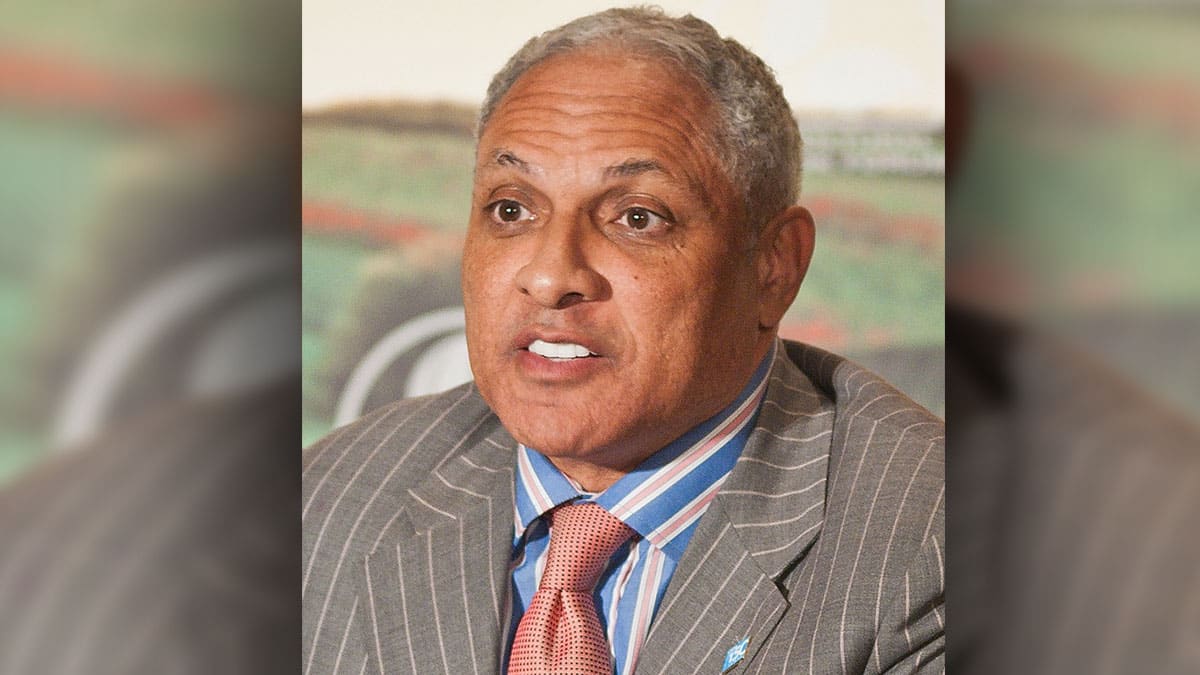Mississippi Today
On this day in 1986


Dec. 2, 1986

Mike Espy became the first Black congressman elected from Mississippi since Reconstruction. Born in Yazoo City, his grandfather was Thomas J. Huddleston Sr., founder of the Afro-American Sons and Daughters, which operated the Afro-American Hospital, providing health care to Black Mississippians until the 1970s. He learned soon about the color line, becoming the only Black student in a newly integrated high school.
He recalled carrying a stick to fend off racist attacks: “Relative to the civil rights experiences of snarling dogs and whips and things it was pretty tame. But I'd always have a fight. The teacher would leave the room, and then you're among 35 in the classroom and they'd make racial jeers.”
He became a lawyer, working as an attorney for Central Mississippi Legal Services from 1978 to 1980. Between 1980 and 1984, Espy worked as assistant secretary of the Public Lands Division for the State of Mississippi and then served as assistant state attorney general for Consumer Protection.
In 1984, he served on the rules committee for the 1984 Democratic National Convention, drawing the attention of the party. In his historic campaign in 1986, he campaigned door to door for votes with his slogan, “Stand by Me, Pray for Me, Vote for Me.”
While serving as congressman, he emphasized economic development in the Delta, winning reelection three times. In 1993, he became the first Black American to serve as secretary of agriculture, ushering in a wave of reform. Four years later, he was indicted on charges of receiving improper gifts, but a jury acquitted him of all charges.
He ran for the U.S. Senate in 2018, where he lost to Republican incumbent Cindy Hyde-Smith, who drew national attention after she remarked that she would “be in the front row” of a “public hanging” if invited by a political supporter. The remark created a firestorm because of Mississippi's history of lynchings. She later responded, “For anyone that was offended by my comments, I certainly apologize,” claiming her remark had been twisted and “turned into a weapon” against her.
Espy lost again in a rematch in 2020.
This article first appeared on Mississippi Today and is republished here under a Creative Commons license.
Mississippi Today
On this day in 1896


MAY 18, 1896

The U.S. Supreme Court ruled 7-1 in Plessy v. Ferguson that racial segregation on railroads or similar public places was constitutional, forging the “separate but equal” doctrine that remained in place until 1954.
In his dissent that would foreshadow the ruling six decades later in Brown v. Board of Education, Justice John Marshall Harlan wrote that “separate but equal” rail cars were aimed at discriminating against Black Americans.
“In the view of the Constitution, in the eye of the law, there is in this country no superior, dominant, ruling class of citizens,” he wrote. “Our Constitution in color-blind and neither knows nor tolerates classes among citizens. In respect of civil rights, all citizens are equal before the law. The humblest is the peer of the most powerful. The law … takes no account of his surroundings or of his color when his civil rights as guaranteed by the supreme law of the land are involved.”
This article first appeared on Mississippi Today and is republished here under a Creative Commons license.
Did you miss our previous article…
https://www.biloxinewsevents.com/?p=359301
Mississippi Today
Renada Stovall, chemist and entrepreneur
Renada Stovall sat on the back deck of her rural Arkansas home one evening, contemplating life when she had a life-altering epiphany…
“I gotta get out of these woods.”
She heard it as clear as lips to her ear and as deep as the trees surrounding her property. Stovall's job as a chemist had taken her all over the country. In addition to Arkansas, there were stints in Atlanta, Dallas and Reno. But she was missing home, her parents and friends. She also knew, she needed something else to do.
“I thought, what kind of business can I start for myself,” said Stovall, as she watered herbs growing in a garden behind her south Jackson home. Some of those herbs are used in her all-natural products. “I know when I lived in Reno, Nevada, where it's very hot and very dry, there really weren't products available that worked for me, my hair, and my skin suffered. I've got a chemistry degree from Spelman College. I took the plunge and decided to create products for myself.”

In 2018, Stovall's venture led to the creation of shea butter moisturizers and natural soaps. But she didn't stop there, and in December 2022, she moved home to Mississippi and got to work, expanding her product line to include body balms and butters, and shampoos infused with avocado and palm, mango butter, coconut and olive oils.
Nadabutter, which incorporates Renada's name, came to fruition.

Stovall sells her balms and moisturizers at what she calls, “pop-up markets,” across the state during the summer. She's available via social media and also creates products depending on what of her ingredients a customer chooses. “My turmeric and honey is really popular,” Stovall added.
“The all-natural ingredients I use are great for conditioning the skin and hair. All of my products make you feel soft and luscious. The shea butter I use comes from West Africa. It's my way of networking and supporting other women. And it's my wish that other women can be inspired to be self-sufficient in starting their own businesses.”





This article first appeared on Mississippi Today and is republished here under a Creative Commons license.
Mississippi Today
On this day in 1954
MAY 17, 1954

In Brown v. Board of Education and Bolling v. Sharpe, the U.S. Supreme Court unanimously ruled that the “separate but equal” doctrine in Plessy v. Ferguson was unconstitutional under the 14th Amendment, which guaranteed equal treatment under the law.
The historic decision brought an end to federal tolerance of racial segregation, ruling in the case of student Linda Brown, who was denied admission to her local elementary school in Topeka, Kansas, because of the color of her skin.
In Mississippi, segregationist leaders called the day “Black Monday” and took up the charge of the just-created white Citizens' Council to preserve racial segregation at all costs.
This article first appeared on Mississippi Today and is republished here under a Creative Commons license.
-
SuperTalk FM6 days ago
Martin Lawrence making 3 stops in Mississippi on comedy tour
-
Our Mississippi Home5 days ago
Beat the Heat with Mississippi’s Best Waterparks
-
SuperTalk FM2 days ago
State auditor cracking down on Mississippians receiving unemployment benefits
-
Our Mississippi Home6 days ago
Charlie’s U-Pik: Opening Soon for the Summer Season
-
Mississippi News Video4 days ago
Jackson has a gang problem
-
Kaiser Health News5 days ago
Medicaid ‘Unwinding’ Decried as Biased Against Disabled People
-
Local News1 day ago
Family files lawsuit after teen’s suicide in Harrison County Jail
-
Mississippi Today3 days ago
On this day in 1950









































